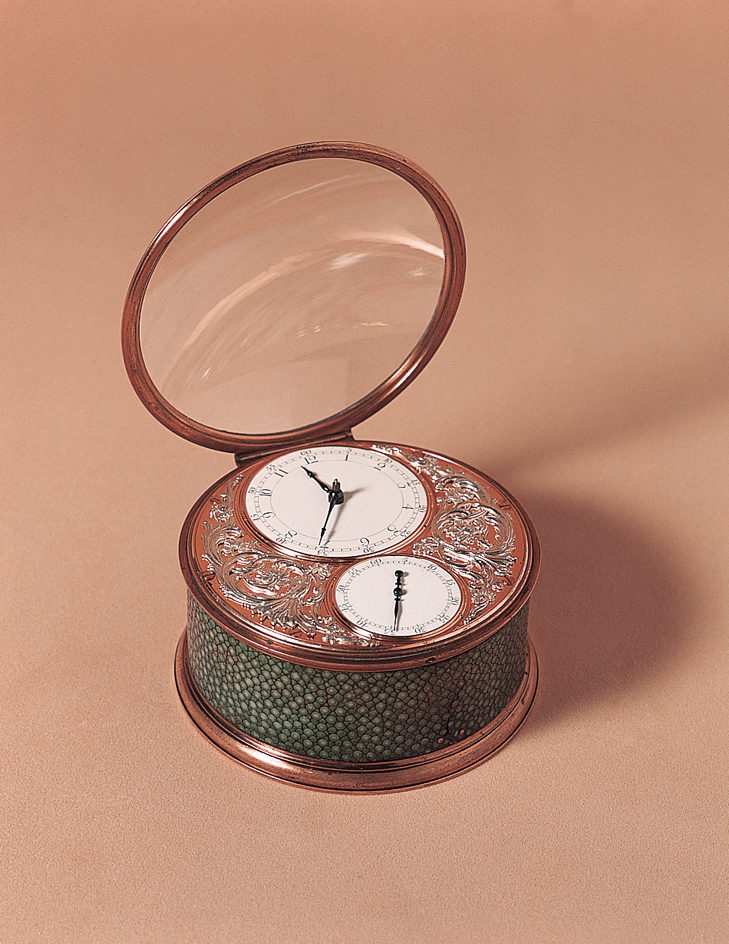Chronometer, << kruh NOM uh tuhr, >> is an instrument that keeps time with extreme accuracy. Clockmakers developed it for use on ships because navigators needed an accurate clock to help determine their position at sea. Astronomers and other scientists who need accurate time measurements also use chronometers.

The marine chronometer is an accurate clock that has been specially mounted to remove the effect of a ship’s motion. It is usually set to Universal Time Coordinated (UTC), an international time standard. To find a ship’s position, a navigator notes the time and measures the positions of certain stars. The navigator compares these positions with tables that show the stars’ positions at UTC, and then calculates the ship’s position.
The first reliable chronometer was developed in 1735 by John Harrison, an English clockmaker. In 1776, Pierre LeRoy, a French watchmaker, constructed a chronometer that became the model for the modern chronometer. During the 1800’s, improved metals that resisted expansion led to better clockworks and more accurate chronometers. Today, many ships rely chiefly on radar and other electronic systems for navigation. Radio time signals and electric and atomic clocks have replaced mechanical chronometers in most other applications.
